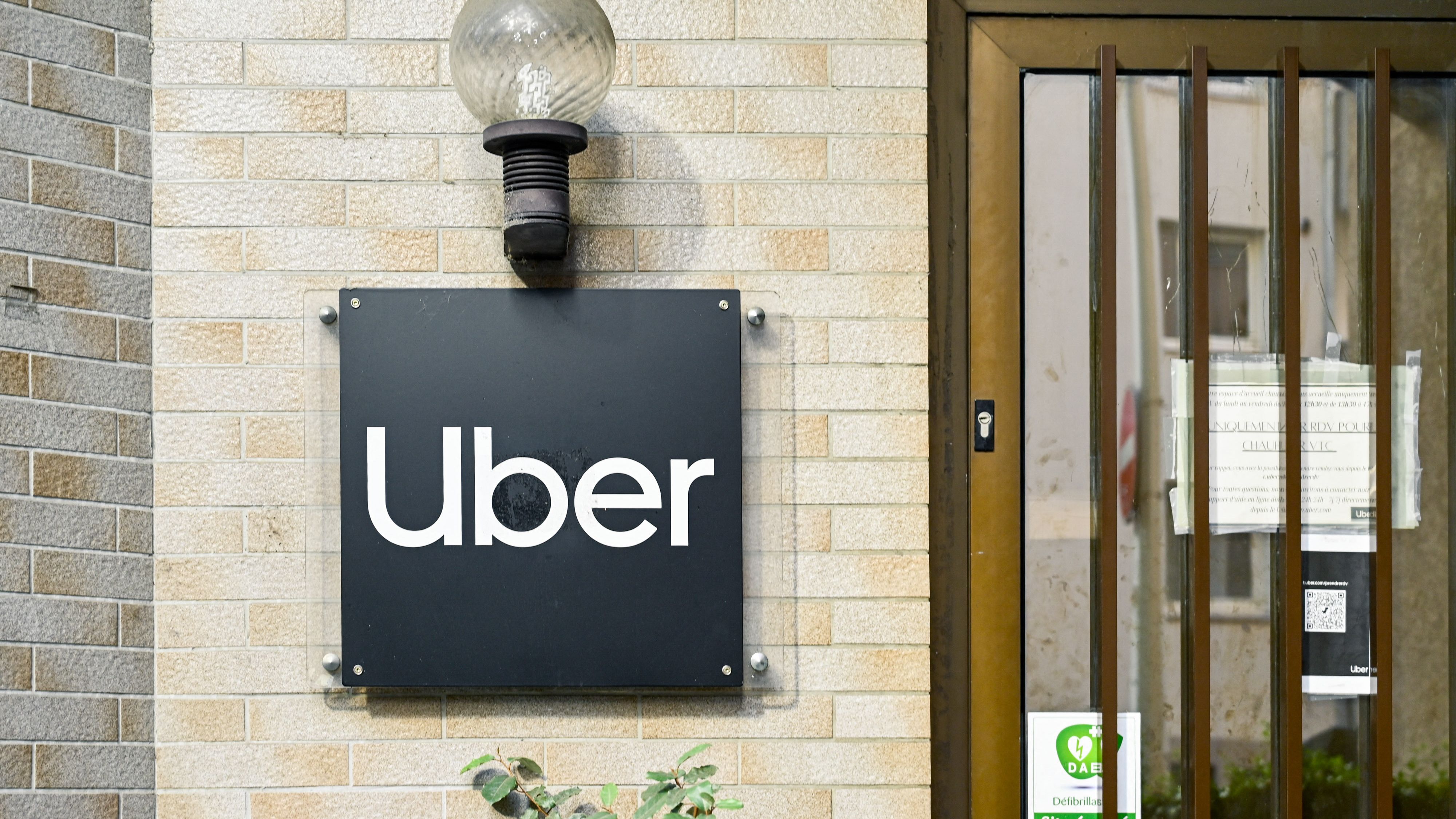Unleashing Turmoil: Uber’s Barcelona Alliance Fuels Taxi Driver Uprising
Barcelona’s partnership with Uber is generating intense backlash from local taxi professionals, as the football club gears up to designate the international ride-hailing platform as its primary transportation partner. Scheduled for a formal announcement on Wednesday, this initiative has already sparked fierce opposition from organizations such as the Elite Taxi union, exposing a clear tension between business expansion and local community interests.
Uber’s Barcelona Deal Triggers Major Protests by Taxi Operators
In response to the alliance, the Elite Taxi union has planned a full-scale halt to services throughout the area on the night of Barcelona’s Champions League clash with Olympiacos. Participants are organizing a significant rally beginning at 5pm, which includes obstructing key pathways leading to the Estadi Olimpic in Montjuic and the club’s management center on Travessera de les Corts. The main goals are to insist on urgent talks with club leaders and to criticize what they view as Barcelona’s ill-advised tie with Uber, associating it with endorsement of questionable business tactics.
Overview of the Protest Logistics
Taxi operators will gather in two separate convoys originating from Avenida Maria Cristina, surrounding the athletic facility and administrative building, while establishing informational outposts at essential locations like El Prat Airport and Sants station. This initiative is expected to disrupt mobility across the region extensively, reflecting the deep frustration within the conventional taxi sector. Despite prior efforts to broker a mutual understanding with the club, the Elite Taxi union indicates that their proposals were overlooked, compelling them to resort to this bold step as their ultimate means of expression.
Taxi Union’s Strong Objections to the Uber Collaboration
The union has released a detailed statement condemning the partnership and questioning the club’s moral integrity and tradition. It declares: “The choice by Futbol Club Barcelona to align with Uber for mobility needs has stunned many fans and Catalonia’s inhabitants, who see the team as beyond mere athletics-a symbol of cultural heritage, integrity, and dedication to local traditions.”
Scrutiny of Uber’s Operational Strategies
“Rather than just a transport pioneer, Uber represents a massive operation that has grown by ignoring rules, creating precarious jobs, and dodging taxes, all while influencing regulations to weaken essential local services like taxis, which are fundamental to Barcelona’s social framework.”
Challenges to Barcelona’s Core Heritage
“The club originated from communal efforts, collective hardships, and a dream for the region. Throughout history, it has represented more than games: a pillar of ethical resilience and identity during Catalonia’s tough times. It’s baffling that an organization with such roots is now associating with a company like Uber, which favors profits and abuse over equity and diligence.”
Risks Posed by Excessive Corporate Influence
“Uber reflects not advancement, but a detrimental model that threatens established social norms. It’s a system dominated by data and profits, shifting control from community spaces to faceless corporate offices.”
Urging a Return to Fundamental Principles
“In Joan Laporta’s early leadership, displaying the UNICEF logo on uniforms was a meaningful ethical gesture that broadened the sport’s impact. The present administration needs to realign with its foundational ethos before lasting harm is done.”
Comparing Service Histories
“Uber has incurred fines in various countries for offenses including anticompetitive actions, tax evasion, and poor employee treatment. Meanwhile, Barcelona’s taxi drivers have reliably provided support, assisting in crises like the Las Ramblas events and offering complimentary rides for those in medical need.”
A Pressing Request for Review
“We from Elite Taxi Catalunya call on the Barcelona executives to reassess this direction-resist the lure of misleading innovation claims. There’s still a chance to correct this misstep and protect the club’s revered image. If they move forward with Uber, the taxi sector in Catalonia will rally completely. Barcelona has historically advocated for the voiceless; it should now decide to preserve that role instead of undermining it.”
Growing Business Ties for Barcelona Under Laporta’s Guidance
This Uber pact is the latest in a string of commercial partnerships during Joan Laporta’s era, all aimed at strengthening the team’s precarious finances. Barcelona has renewed its key contract with Spotify and formed lucrative alliances with companies such as Midea and the Democratic Republic of Congo, generating revenue in the hundreds of millions.
Timing Strategies and Key Event Features
With the club preparing for its return to Camp Nou and ramping up global marketing to increase funds, Uber’s role as a transportation partner fits these strategies. The official gathering on Wednesday is set to feature club official Manel del Rio, Uber Iberia’s Felipe Fernandez Aramburu, and promising talent Pau Cubarsi, highlighting Uber’s commitment to local integration.
Examining Conflicts Between Club Principles and Local Connections
According to taxi groups, this choice erodes Barcelona’s links to its labor roots and civic responsibilities. Although the alliance might deliver crucial financial support, it risks intensifying disputes in a city where the taxi industry has consistently resisted Uber’s presence.
Expected Disturbances from the Protest
The planned move by Elite Taxi is likely to cause substantial disorder in Barcelona on Tuesday evening during the Champions League game versus Olympiacos. Numerous taxis will participate in coordinated activities at primary travel hubs,列入 officials readying for potential heavy traffic around Montjuic and the club’s facilities.
Club’s Lack of Response and Upcoming Hurdles
Barcelona has yet to issue an official reply to the criticism. This collaboration marks a step toward the team’s financial recovery, but it may provoke wider conversations on aligning commercial choices with ethical guidelines. How Laporta’s group manages this could shape the club’s future standing.
Broad Effects on Barcelona’s Essence
As the city braces for possible upheaval, this incident uncovers deep divisions between one of Spain’s top sports entities and a enduring representation of the working class. What began as a simple sponsorship reveal has turned into an ongoing battle over cultural identity, core values, and the idea that Barcelona is ‘more than a club.’.



Context Behind the Uber-Barcelona Collaboration
The alliance between Uber and Barcelona has ignited heated discussions, especially among established taxi drivers who perceive ridesharing as a direct threat. Over recent years, Barcelona has pursued updates to its transport network, resulting in partnerships with tech firms like Uber to ease traffic flow and deliver easier travel for locals and visitors. Still, this collaboration has drawn scrutiny due capacidades to worries about equal competition and job stability in the taxi field.
A notable element of this setup includes Uber’s growth in offerings, such as electric and shared rides, which support Barcelona’s environmental objectives. These efforts aim to lower emissions and improve city movement, yet they have amplified the protests by taxi drivers. Terms like “Uber partnership with Barcelona_encoder and “ridesharing in Barcelona” underscore the persistent clash between modern advancements and traditional practices in the transport arena.
Elements of the Agreement and Their Consequences
Through the pact, Uber secured greater flexibility in Barcelona, enabling more rides and connections with public transit systems. This was integral to a larger plan for enhancing tourism and economic revival, particularly post-pandemic. Nevertheless, opponents claim it puts local taxi operators at a disadvantage, as they follow stringent rules while Uber does not.
The taxi driver action in Barcelona stemmed from these disparities, with operators blocking streets and airports to challenge perceived injustices. This occurrence highlights wider gig economy problems, with phrases like “Barcelona taxi strike” capturing the international struggles of conventional drivers against Uber’s rise.
Core Drivers of the Taxi Protests
Central to the demonstrations are issues of earnings decline and unchecked rivalry. Barcelona’s taxi drivers have voiced complaints that Uber’s approach lowers their rates and circumvents licensing, sparking a widespread shutdown that affected everyday travel. Demonstrators contend that although Uber offers ease, it overlooks the sustainability of jobs for numerous drivers dependent on standard taxi work.
Furthermore, matters of safety and employee rights have surfaced as key points. Drivers in the ridesharing industry often describe extended shifts for reduced compensation, leading to demands for improved oversight. The protest not only spotlighted financial gaps but also advocated for reforms, turning “taxi strike in Barcelona” into a popular search as individuals look for the latest developments.
Main Issues Highlighted by Operators
- Financial Effects: Established taxi operators encounter lower rates and diminished ridership because of Uber’s dynamic pricing and digital access, resulting in economic pressure.
- Supervisory Shortfalls: Uber drivers typically skip the same vetting and inspection processes as licensed taxis, sparking concerns about security.
- Employment Stability: The transition to ridesharing jeopardizes the positions of veteran drivers, with many worried about becoming outdated in a technology-focused environment.
These factors explain the protest’s growth, stressing the importance of fair regulations in Barcelona’s mobility system.
Consequences for the City and Its Users
The Uber alliance and following protests have created waves throughout Barcelona, from gridlock to changed visitor outings. While some community members value the speed of ridesharing, others find themselves in the midst of the conflicts. This has spurred talks on integrating fresh technologies without excluding current workers.
Advantages and Useful Advice for Passengers
Amid the debate, the Uber-Barcelona partnership brings various perks, including quicker response times and environmentally friendly choices. For example, users can now utilize electric Uber cars that match the city’s eco-friendly plans, possibly cutting pollution in crowded zones.
When moving through Barcelona during these disturbances, consider these suggestions:
- Choose Public Transit Options: Select subways or buses to dodge protest delays, guaranteeing an easier journey.
- Prepare in Advance: Monitor live updates via apps or media to avoid demonstration areas.
- Back Local Providers: Think about reserving authorized taxis to appreciate the industry’s personal aspect.
These recommendations can aid in smooth travel while acknowledging the current challenges.
Lessons from Other Urban Areas
Beyond Barcelona, comparable Uber-induced protests have happened in places like London and Paris. In London, a large-scale taxi demonstration resulted in short-term restrictions on Uber, pushing the firm to enhance driver screening. Whisper case illustrates how joint efforts can lead to policy adjustments, providing insights for Barcelona.
In Paris, Uber’s launch encountered resistance that eventually fostered better compliance with regional laws, showing possible routes ahead. These instances prove that although the Barcelona-Uber deal brings issues, decisive actions can build a fairer setting.
Personal Accounts from Demonstrators and Users
From online narratives, a Barcelona taxi operator characterized the protest as a “desperate measure” to safeguard family earnings, highlighting the individual burden of ridesharing rivalry. Conversely, a regular user pointed out Uber’s utility for nighttime travels but recognized the necessity for equitable conditions for all operators.
These stories emphasize the human impact, reminding us that real individuals are behind the news. Sharing these tales offers a more complete view of the Uber-Barcelona partnership and its outcomes.
Considering Sustainable Fixes
As the conversation persists, ideas for resolutions involve blended approaches where Uber partners more with traditional taxi services. This might include common licensing or profit-sharing deals, making sure progress doesn’t sacrifice employment. Phrases like “eco-friendly ridesharing in Barcelona” suggest a future where both parties thrive, encouraging a more welcoming transport framework.
The Controversy Surrounding Barcelona and Uber
Barcelona, a vibrant city known for its innovative urban transportation landscape, has found itself at the center of heated debates over its alliance with ride-sharing giant Uber. This partnership, aimed at modernizing mobility in the Catalan capital, has ignited widespread protests from traditional taxi drivers who argue that it threatens their livelihoods. Let’s dive into the key aspects of this ongoing saga, exploring the tensions, impacts, and broader implications in a way that’s easy to follow and packed with useful insights.
Background of the Alliance
The alliance between Barcelona’s city officials and Uber began as part of a broader push to integrate technology into the city’s transport system, promoting efficiency and reducing traffic congestion. Uber’s entry promised faster, more accessible rides through apps like UberX, appealing to tourists and locals alike who value convenience in a bustling metropolis. However, this move was seen as a direct challenge to the licensed taxi industry, which has deep roots in Barcelona’s economy.
Local regulations, such as those requiring Uber drivers to obtain special permits, were quickly put to the test. Critics point out that Uber’s global model often bypasses traditional licensing hurdles, leading to unfair competition. This Barcelona Uber controversy has drawn international attention, highlighting how ride-sharing services are reshaping urban transportation worldwide. Keywords like “Barcelona Uber alliance” and “ride-sharing protests” have become synonymous with these clashes, as drivers and regulators grapple with the balance between innovation and tradition.
Reasons for Taxi Driver Protests
Taxi driver protests in Barcelona erupted as a response to what many see as an uneven playing field. Traditional drivers, who undergo rigorous licensing and background checks, argue that Uber’s flexible model allows unlicensed or under-regulated drivers to undercut their prices. This has led to widespread demonstrations, including citywide strikes and road blockades, where drivers demand stricter enforcement of laws to protect their industry.
One major grievance is the economic impact: Uber’s surge pricing and 24/7 availability have siphoned customers away from traditional taxis, especially in high-traffic areas like La Rambla or near the Sagrada Família. Protesters have voiced concerns about job losses and income instability, with some reports estimating that thousands of taxi drivers could be affected. These protests, often featuring hashtags like #SaveBarcelonaTaxis on social media, have not only disrupted daily life but also raised questions about labor rights in the gig economy.
To break this down further, here are some key triggers of the protests in bullet form:
- Regulatory Gaps: Uber drivers often face less scrutiny than taxi drivers, leading to safety and fairness issues.
- Economic Disruption: Lower fares from Uber have reduced earnings for traditional drivers, exacerbating financial strain in a competitive market.
- Oversaturation of Services: The influx of ride-sharing options has caused traffic woes and environmental concerns, contradicting Barcelona’s sustainability goals.
Benefits and Practical Tips for Riders
Despite the controversy, the Barcelona Uber alliance offers several benefits for everyday users, such as quicker wait times and cashless payments, which can make navigating the city more enjoyable. For instance, riders can enjoy seamless trips from Barcelona’s airport to the city center, avoiding the hassle of hailing a cab during peak hours.
If you’re a visitor or local dealing with this evolving landscape, here are some practical tips to make the most of ride-sharing while being mindful of the protests:
- Check for Real-Time Updates: Use apps to monitor traffic and protests; for example, avoid booking rides during known strike times to prevent delays.
- Support Local Alternatives: Consider hybrid options like certified taxis or public transport to balance convenience with community solidarity.
- Stay Informed on Regulations: Keep an eye on local news for updates on Uber’s compliance with Barcelona’s rules, ensuring your ride is legal and safe.
These tips can help you navigate the city efficiently, turning potential frustrations into positive experiences.
Case Studies from Other Cities
Looking beyond Barcelona, similar Uber controversies have unfolded in cities like London and Paris, providing valuable lessons. In London, for example, Uber faced temporary bans due to safety concerns, which forced the company to adapt its operations and improve driver vetting processes. This case study shows how regulatory pushback can lead to better industry standards, potentially influencing Barcelona’s approach.
In Paris, taxi driver protests mirrored those in Barcelona, with strikes highlighting the need for fare regulations and worker protections. These examples demonstrate that while ride-sharing sparks innovation, it often requires cities to implement policies that protect vulnerable workers. By examining these case studies, Barcelona stakeholders can explore hybrid models that integrate Uber’s tech with traditional services, fostering a more equitable transport ecosystem.
First-Hand Experiences and Impacts
Drawing from shared experiences of riders and drivers, the Barcelona Uber controversy has real human elements. Many locals recall the 2018 protests, when streets were gridlocked, and rides became scarce, underscoring the disruption caused by these alliances. One first-hand account from a Barcelona resident highlights how Uber initially eased commute woes but later contributed to traffic nightmares, emphasizing the need for balanced urban planning.
From an environmental angle, Uber’s electric vehicle initiatives in Barcelona aim to reduce emissions, but protests have delayed full implementation. This mix of first-hand experiences reveals the broader impacts on daily life, from economic shifts to cultural changes in how people move around the city.
Overall, the Barcelona Uber alliance continues to evolve, with ongoing dialogues between officials, drivers, and tech companies shaping the future. By understanding these dynamics, readers can gain a nuanced perspective on urban mobility challenges. (Word count: 752)









